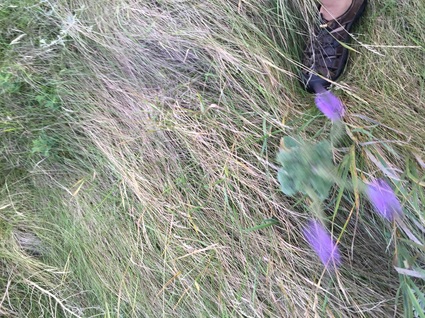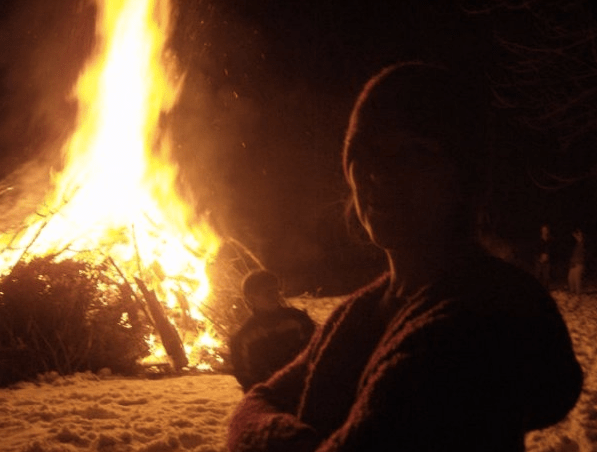|
I often think of Christmas as the time to pray and ponder about how to give birth to a revolution, and how to nurture one, once it has been born.
The birth of Christ was a revolution of love. We are ready for another one, as we are each year at this time, and this year calls on us in so many ways. For me, in particular I want a revolution in how we love and respect the quiet life of the land--which we all depend on in so many hidden and obvious ways, for abundant clean water in particular--but also for our food, health, protection from flood, drought, heatwaves, wildfires; for our economies and for peace and safe havens on every continent. Our misunderstandings about the holy power of photosynthesis, transpiration, and the work of microbes, pollinators, and grazing animals have toppled many a civilization as their living soils fail, and fail to provide all the gifts that God offers us freely. I expect us to learn to work together with people who are different than we are to allow these gifts to flourish again. We know how to do it. An audacious goal can unify people in unexpected ways. Rehydrate California, Oklahoma, Mexico, Alberta, Africa, and Syria, anyone? Who will join me in my audacious goal?
1 Comment
The microorganisms that we host in our bodies do much of the work that we take credit for ourselves. They carry out and direct many of the essential processes that enable us to think, play, and work in daily life. Even the cells that we call our own are in fact microorganisms that have organized themselves to work together in a living system that we call “a human body.” You could call it a worker’s cooperative. Microorganisms in the soil also do important work that we are mostly unaware of, because - like the working class - their work is quiet and hidden from view. Yet these workers provide most of the essential goods and services we rely on for daily life.
Society teaches us to credit the “owners” and “managers” of companies with the products of a company’s labor - not the working-class people who sit in the factory and do the real work. Our relationship with microorganisms echoes this pattern, (and often for reasons of profit as well.) When we don’t understand or acknowledge the intelligence, power and work of microorganisms, and try to take too much control over life’s processes, we make management decisions that tend to lead to poor functioning of the whole, often creating conditions in which those organisms cannot do their work or even survive.  Went for a walk tonight on 25 acres of unbroken prairie that now belongs to entomologist Jon and Jenna Krogh Lundgren, part of Blue Dasher Farm, the agroecology research laboratory and demonstration farm they founded to pursue their science without the interference of corporate interests. Each little change in the land had its own niche of amazing plants, whose preciousness was intensified by the proximity of the enormous gas pipeline plant looming over us nearby. Long conversation over dinner about how to move things forward towards land regeneration on a larger scale. Jon and his intern Claire are collaborating with me as I write soil health curriculum for the agricultural programs at 350 high schools in Oklahoma. |
Didi Pershouse's
|

 RSS Feed
RSS Feed